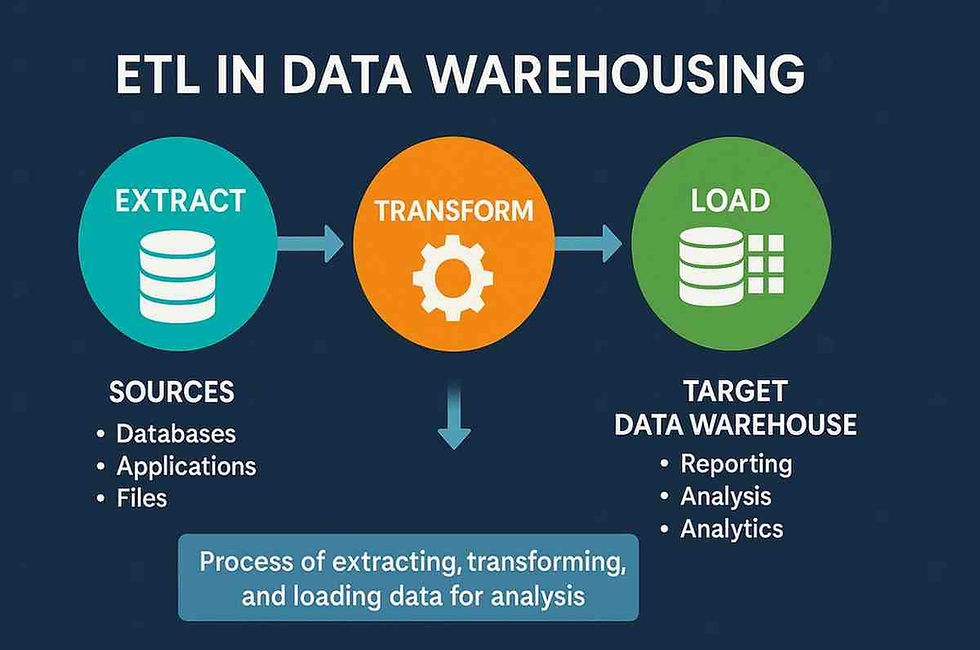Guide to C Profilers: Optimize Your Code Efficiently
- Gunashree RS
- Sep 12, 2024
- 7 min read
In software development, ensuring optimal performance is crucial, especially when dealing with languages like C and C++, which are known for their speed and low-level control. However, as your project grows in complexity, identifying performance bottlenecks, memory leaks, and inefficient code paths can become challenging. This is where a C profiler steps in, allowing developers to analyze their code's runtime behavior, detect inefficiencies, and optimize the application for better performance.
Profiling tools, such as AQTime Pro, provide a detailed analysis of your code, giving insights into how the application performs in real time, where memory leaks may be occurring, and which parts of the code need further optimization.
In this article, we will delve deep into C profilers, their importance, how they work, and the best tools available for profiling C code.
1. What Is a C Profiler?
A C profiler is a performance analysis tool that monitors and records the execution of a C or C++ program to identify areas that require optimization. Profilers gather real-time data on function calls, memory usage, CPU cycles, and execution time to give developers insights into how their code behaves under various conditions.
Profiling tools provide detailed reports that help detect performance bottlenecks, memory leaks, inefficient algorithms, and untested code, enabling developers to optimize the application before deployment.

2. Why Profiling Is Important in C Development
C and C++ are known for their performance advantages, but they can also introduce risks like memory leaks, unoptimized code paths, and unintentional bottlenecks. These issues may not surface during development but can lead to degraded performance in production environments. Profiling allows developers to:
Improve Efficiency: Identify code segments that consume excessive resources, and optimize them for better performance.
Ensure Memory Integrity: Detect memory leaks and fix them before they cause application crashes.
Increase Test Coverage: Identify parts of the code that are under-tested or untested to improve test coverage.
Enhance Stability: Reduce runtime errors by resolving memory allocation issues and inefficient resource usage.
In short, profiling helps you write more efficient, stable, and reliable code.
3. Key Features of C Profilers
Modern C profilers come with a wide range of features designed to enhance your software's performance and stability. Some key features include:
Performance Profiling: Measures the time spent on different functions or methods and identifies slow-running code segments.
Memory Leak Detection: Identifies memory leaks and helps developers track down the source of the leak.
Resource Allocation Monitoring: Monitors the real-time allocation of system resources like memory, CPU, and handles.
Code Coverage Analysis: Shows which parts of the code have been executed during testing and identifies untested or under-tested code segments.
Selective Profiling: This allows you to focus on specific modules or functions for profiling rather than analyzing the entire codebase.
Snapshot Comparison: Capture and compare memory or performance snapshots over time to track improvements or regressions.
4. How C Profilers Work
C profilers work by inserting hooks or sensors into the compiled code to monitor its runtime behavior. When the application runs, these hooks record detailed information about function calls, memory allocations, and resource usage. Profilers collect and analyze this data, producing reports that highlight which parts of the application are consuming the most resources or causing performance bottlenecks.
Some profilers work at the source code level, analyzing function calls directly, while others operate at the system level, tracking resource consumption and process execution times.
5. Types of C Profilers
Performance Profilers
Performance profilers analyze how long functions take to execute and which parts of the code consume the most CPU time. These tools identify slow or inefficient code paths, allowing developers to optimize those areas for better performance.
Memory Profilers
Memory profilers track memory allocation and usage throughout the application's lifecycle. They help identify memory leaks, improper memory management, and excessive memory consumption, ensuring that the application runs efficiently without causing memory exhaustion.
Code Coverage Profilers
Code coverage profilers measure which lines of code have been executed during testing. This helps developers identify untested parts of their codebase and optimize their test coverage, ensuring that all potential edge cases are addressed.
6. Using C Profilers to Identify Performance Bottlenecks
One of the primary uses of a C profiler is to identify performance bottlenecks in your application. Performance profilers like AQTime Pro allow developers to:
Pinpoint slow functions that increase response time or delay program execution.
Analyze the CPU usage of each function and determine which parts of the code need optimization.
Detect inefficiencies such as frequent or unnecessary function calls.
By focusing on the most time-consuming areas of your application, you can achieve significant performance gains with minimal changes to the code.
7. Profiling Memory Usage and Detecting Leaks
Memory leaks are a common issue in C and C++ applications due to their manual memory management. Profiling tools like AQTime Pro help you:
Monitor Memory Allocation in Real Time: Track memory usage throughout the application’s execution and identify excessive memory allocation.
Detect Memory Leaks: Identify unreleased memory blocks, handle leaks, and other resource leaks.
Compare Memory Snapshots: Capture and compare memory usage snapshots to track which objects or memory blocks are staying in memory longer than they should.
These tools provide detailed insights into how your application handles memory, ensuring efficient memory management and preventing crashes or slowdowns due to resource exhaustion.
8. Code Coverage and Selective Profiling
Code coverage analysis helps developers understand how thoroughly their code is being tested. Profilers like AQTime Pro allow you to:
Analyze Code Coverage: Measure which functions or lines of code are covered during testing and identify untested or partially tested sections.
Selective Profiling: Focus on specific source files, functions, or modules to reduce the overhead and time required for profiling.
This helps in ensuring that your test suite covers all critical areas of the application, reducing the chances of bugs slipping through untested code paths.
9. Best Practices for Profiling C Applications
To get the most out of a C profiler, it’s essential to follow some best practices:
Profile in Development, Not Just Production: Don’t wait until the final stages to profile your application. Regular profiling during development can catch issues early.
Optimize for Performance and Memory Usage: Use profiling data to optimize both performance and memory usage, as both are critical for application stability.
Combine Profiling with Unit Tests: Use profiling alongside your unit tests to ensure that performance and memory management issues are detected during testing.
Selective Profiling for Large Codebases: For large projects, focus on specific modules or functions to avoid overwhelming amounts of profiling data.

10. Popular C Profiling Tools
There are several excellent profiling tools available for C developers. Here are some of the most popular ones:
AQTime Pro
AQTime Pro offers a comprehensive suite of profiling features, including performance profiling, memory leak detection, and code coverage analysis. It integrates with Visual Studio, allowing you to seamlessly profile your C and C++ applications.
gprof
gprof is a performance analysis tool for Unix-based systems that generates reports on the time spent in various functions. It's commonly used in open-source projects and offers detailed performance insights.
Valgrind
Valgrind is a tool suite for debugging and profiling, with a particular focus on memory management. It helps detect memory leaks, invalid memory access, and improper use of heap memory.
Intel VTune
Intel VTune is a powerful performance profiler that supports C, C++, and other languages. It offers detailed CPU, memory, and threading analysis, making it a favorite for performance-critical applications.
Perf (Linux)
Perf is a performance monitoring tool for Linux-based systems that collects performance data and generates detailed reports. It's especially useful for analyzing system-level performance issues.
11. Case Studies: Successful Profiling in Real Projects
Case Study 1: Optimizing a Game Engine
A leading game development studio used AQTime Pro to profile their C++ game engine. By analyzing performance bottlenecks and memory usage, they reduced load times by 20% and improved the game's frame rate, providing a smoother user experience.
Case Study 2: Reducing Memory Leaks in a Healthcare Application
A healthcare software company was experiencing crashes due to memory leaks. Using Valgrind, they identified the source of the leaks and optimized their memory management. The result was a 30% reduction in memory consumption and improved application stability.
12. Frequently Asked Questions (FAQs)
1. What is a C profiler?
A C profiler is a tool used to analyze the performance, memory usage, and code coverage of a C or C++ application.
2. Why is profiling important for C developers?
Profiling helps identify performance bottlenecks, memory leaks, and untested code, ensuring your application runs efficiently.
3. Can C profilers detect memory leaks?
Yes, memory profiling tools like Valgrind and AQTime Pro can detect memory leaks and help developers fix them.
4. What are the types of C profilers?
There are three main types: performance profilers, memory profilers, and code coverage profilers.
5. How do C profilers work?
Profilers insert hooks into the code that monitor its execution, tracking function calls, resource allocation, and memory usage in real time.
6. What is selective profiling?
Selective profiling allows developers to focus on specific modules or functions rather than profiling the entire codebase.
13. Conclusion
A C profiler is an indispensable tool for any C or C++ developer who wants to optimize their application's performance, memory usage, and code coverage. By regularly profiling your application, you can ensure that it runs smoothly, efficiently, and without any hidden performance bottlenecks or memory leaks. Tools like AQTime Pro, Valgrind, and Intel VTune offer robust solutions for both novice and expert developers, helping them achieve peak performance in their applications.
14. Key Takeaways
C profilers are essential for optimizing performance and memory usage.
Profiling identifies bottlenecks, memory leaks, and untested code.
Performance, memory, and code coverage are key areas of focus in profiling.
Popular C profilers include AQTime Pro, gprof, Valgrind, and Intel VTune.
Regular profiling during development helps catch and fix issues early.




Comments